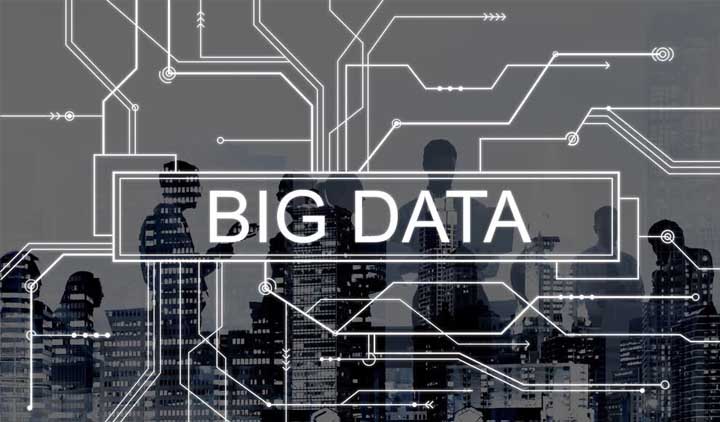Characteristics Of Big Data – The development of technology and information, especially in the digital era, runs very fast. Talking about data in the digital era cannot be separated from what is called big data.
Some of you may already be familiar with the term, but not a few are still new and don’t know the types and characteristics of big data. To make it easier to understand, understand the following reviews!
Daftar Isi
What Is Big Data?
Before moving on to the types and characteristics of big data, it’s a good idea to know what is known as big data.
In simple terms, big data can be defined as a collection of large and complex amounts of data that increase over time. Examples of big data are telephone numbers, addresses, and others.
Current data also vary in shape and appearance. For example, posts on social media can also be data. Apart from that, there is also a shopping history on the marketplace to the data in the smartphone application.
Types Of Big Data
The characteristics of big data cannot be separated from the types of data used in a program.
This type of big data is divided into three main types, namely structured data, semi-structured data, and unstructured. The following is an explanation of the three.
Structured Data
The first type of data is structured data that is well structured and defined. This data is easily understood by computers and humans. This data can also be stored, analyzed, and processed using a good format.
Semi Structured Data
Next, there is semi structured data. This data is actually structured data, but it is incomplete and does not qualify as structured data like an RDBMS. This sample data is a NoSQL document that has keywords for processing and a CSV file.
Unstructured Data
The last type of big data is unstructured data, namely data that is neither structured nor well defined, making it more difficult to handle, understand, and analyze.
Examples of unstructured data are comment data on social media, tweets on Twitter, posts, and likes.
10 Characteristics Of Big Data
In its application, big data has its own different characteristics. In general, the characteristics of big data are divided into ten factors. Here’s an explanation.
1. Volume
Volume is the main character in big data. This is certainly not surprising, because more than 90% of data today is based on copies of previous years.
The data available today has indeed increased quite significantly. For example, in every minute, there are about 300 hours of videos uploaded on YouTube.
2. Velocity
Velocity is the speed at which data is generated, processed and generalized. This speed is very influential on big data traffic.
Here we can give an example of Google, which records around 40 thousand searches every second. If this is accumulated, there will be more than 3.5 billion searches every day.
3. Variety
This data character is a set of big data that varies on each platform. Data types are grouped into structured data, semi-structured data and unstructured data.
An example is on social media which displays many kinds of data, from photos, videos, forms, to featured filters. In business matters, this data also takes various forms, it can be in the form of documents, tables, and so on.
4. Veracity
Veracity is the accuracy of data in processing a program. Just imagine if a lot of data does not have high accuracy. Of course, this will cause an error and the impact will be very significant, for example the implementation of account names on Facebook, Instagram, and so on.
5. Value
In this characteristic, value can be interpreted as big data that is made to have benefits for users or people. As reported by Hootsuite, Instagram Stories has been used by 500 million users per day. That means, the feature is quite influential and has its own value.
6. Visualization
This characteristic of big data often becomes a challenge, namely how to visualize it. Here, it can be exemplified by data in a map containing landscapes, coordinates, trees, which are one of the images of data that can be visualized.
7. Volatility
Volatility, namely data collected per day or a few days ago may be different from the data currently available. In essence, this characteristic is related to changes in data that can have an impact on data homogeneity.
8. Validity
At first glance, these characteristics are almost the same as veracity. Here, the data collected must be valid and relevant before it can be used, especially for certain purposes so that it can work properly.
9. Vulnerability
Another important characteristic of big data is security. In this case, big data must be able to protect it from unwanted things. For example, hacking carried out by irresponsible parties.
10. Variability
This concerns changes to different data. These different data can have an impact on other characteristics, for example, on the process and speed of data transfer.
Conclusion
Based on the reviews above, understanding the types and characteristics of big data is the most important thing, especially if you want to create a specific operating system and programming.
Make sure you pay close attention to these characteristics to support the optimization of program operations.
Apart from that, you can also find out more about various other important things about data by taking a data science class organized by the Algorithma Data Science School. Then, choose classes and courses that suit your needs.
Related post:
- Here Are The Top 6 Most Wanted Big Data Jobs by Companies
- Big Data Management Strategy to The Maximum For The Company
- The Importance of Big Data Analytics in The World of Technology
- Big Data Companies That Have Success in Its Implementation
- Big Data Era: Get to Know the Basics, Conventional Is The Key!
- Big Data Management Challenges Facing Companies and Solution
